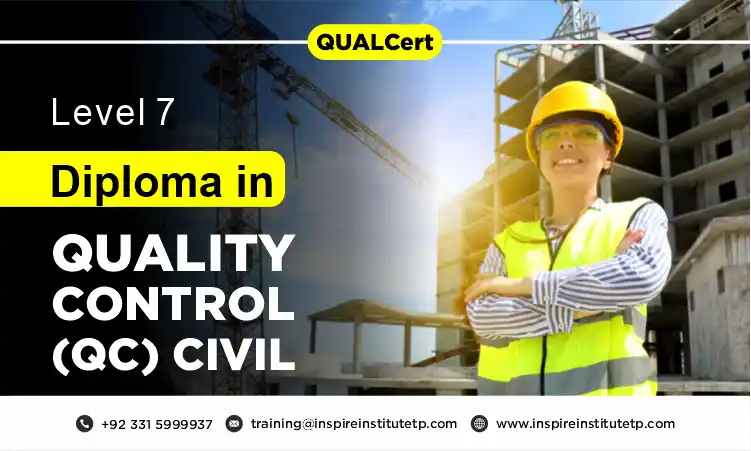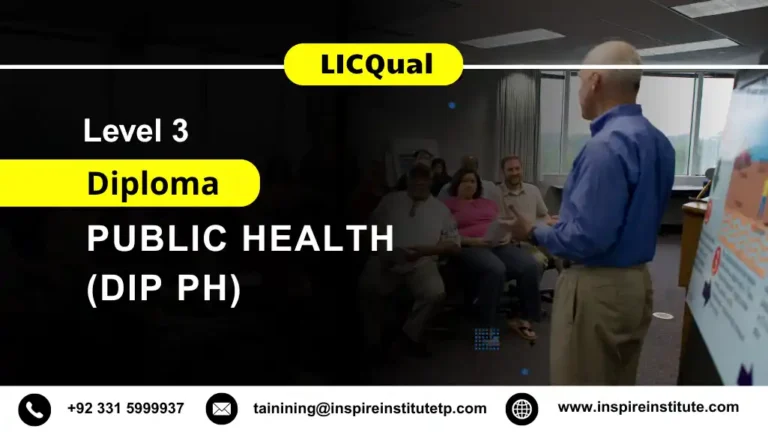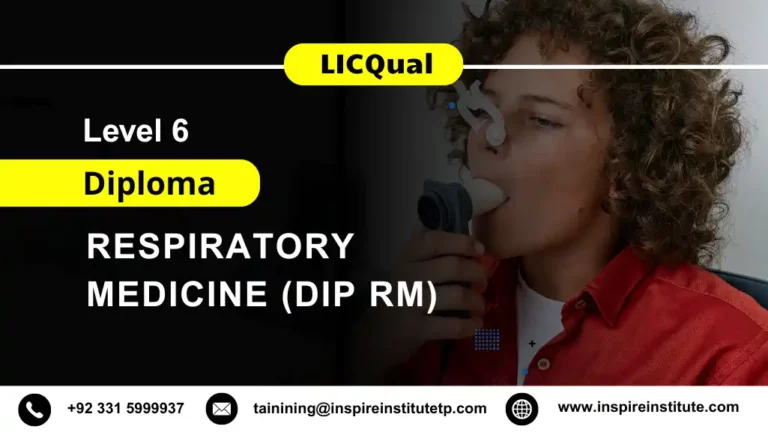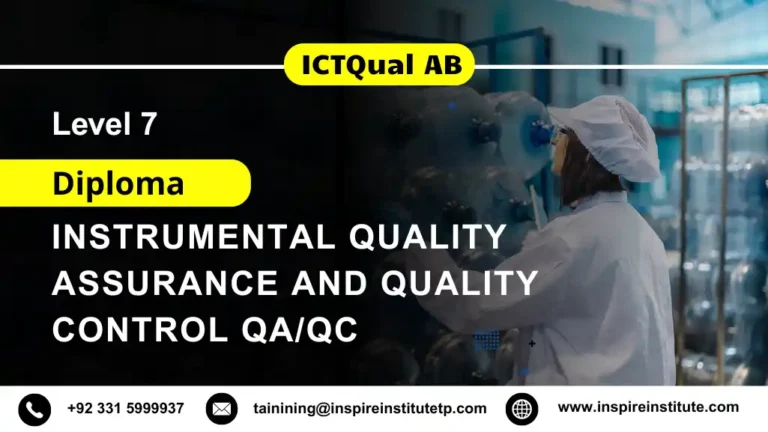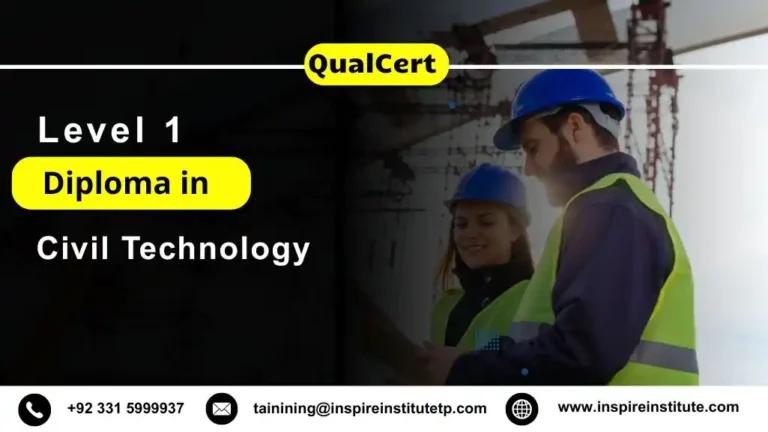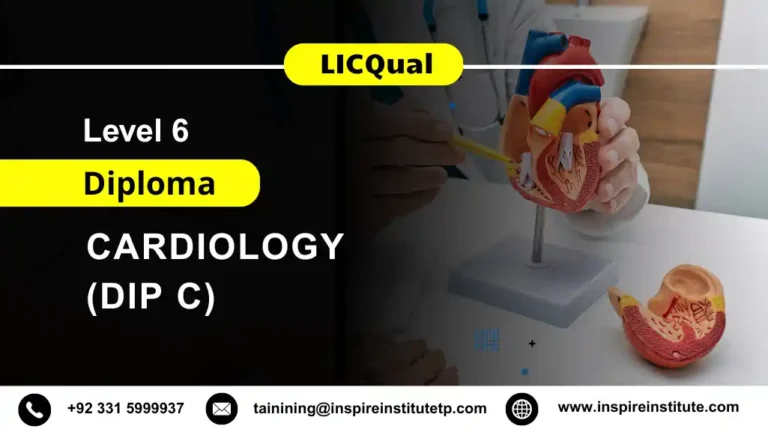QualCert Level 7 Diploma in Quality Control (QC) Civil
The QualCert Level 7 Diploma in Quality Control (QC) Civil is a specialized program designed for professionals in the civil engineering and construction sectors. This diploma equips learners with advanced knowledge and practical skills necessary for ensuring quality control in civil projects. Participants will explore essential topics such as quality management systems, inspection techniques, and compliance with industry standards and regulations.
The course focuses on developing competencies in managing quality assurance processes, identifying potential risks, and implementing effective solutions to maintain project integrity. With its emphasis on real-world applications and best practices, this qualification prepares graduates for leadership roles in quality management, enhancing their career prospects in the competitive civil engineering field.
Why Choose this Qualification
Following are the some reasons to choose the QualCert Level 7 Diploma in Quality Control (QC) Civil:
- Specialized Knowledge: This diploma provides in-depth understanding of quality control processes specific to the civil engineering and construction industries, ensuring you are well-versed in the latest practices and standards.
- Career Advancement: Earning this qualification can significantly enhance your career prospects, opening doors to senior roles in quality management, project oversight, and compliance within civil engineering firms.
- Industry Recognition: The QualCert diploma is recognized across the construction sector, bolstering your credibility and making you a more attractive candidate to employers.
- Comprehensive Curriculum: The course covers essential topics such as quality assurance methodologies, regulatory compliance, and risk management, equipping you with the skills needed to excel in quality control.
- Practical Application: Focus on real-world case studies and hands-on projects ensures you can apply theoretical knowledge effectively in professional settings.
- Regulatory Compliance: Stay updated on relevant regulations and standards, enabling you to maintain compliance and ensure quality in civil projects.
- Leadership Development: Build essential leadership and management skills that are crucial for overseeing teams and influencing a culture of quality within organizations.
- Networking Opportunities: Connect with industry professionals and peers, providing valuable networking opportunities that can lead to collaboration and career growth.
- Global Recognition: The diploma offers international recognition, enhancing your qualifications and career opportunities in civil engineering and quality control on a global scale.
Course Overview
UK Based Qualification
Course Level: Level
8
Average Completion Time:
6-18 Months
Study Units: 7 Units
Evidence & Assignment Based
Qualification Structure
The QualCert Level 7 Diploma in Quality Control (QC) Civil consist of 7 mandatory units for completed Qualification.
Mandatory Units
Who Should Take This Course
The QualCert Level 7 Diploma in Quality Control (QC) in Civil Engineering is designed for professionals involved in quality control processes within the construction and civil engineering sectors. Here are some specific groups of individuals who should consider this qualification:
- Quality Control Managers: Those responsible for overseeing quality assurance and control processes in civil engineering projects.
- Civil Engineers: Professionals looking to enhance their understanding of quality control measures specific to construction and infrastructure projects.
- Project Managers: Individuals managing construction projects who need to ensure compliance with quality standards and regulations.
- Site Supervisors: Those directly involved in on-site operations and monitoring of quality assurance practices.
- Construction Inspectors: Professionals tasked with evaluating construction methods and materials to ensure they meet industry standards.
- Quality Assurance Specialists: Individuals focused on developing and implementing quality control procedures within their organizations.
- Regulatory Compliance Officers: Those ensuring that construction projects comply with local and national quality standards.
- Aspiring Quality Control Professionals: Individuals seeking to start or advance their careers in quality control within the civil engineering sector.
This qualification is beneficial for anyone looking to improve their expertise in quality management systems and practices, particularly in the context of civil engineering and construction.
Course Benefits
key benefits of completing the QualCert Level 7 Diploma in Quality Control (QC) in Civil Engineering:
- Enhanced Knowledge and Skills: Gain in-depth understanding of quality control principles, practices, and methodologies specific to the civil engineering sector.
- Career Advancement: Improve your qualifications and increase your career prospects, enabling you to pursue higher-level positions in quality management or civil engineering.
- Practical Application: Learn how to implement effective quality control processes in real-world scenarios, enhancing your problem-solving skills and ability to ensure project compliance.
- Industry Recognition: Achieve a recognized qualification that demonstrates your commitment to quality and professionalism, making you more attractive to employers.
- Regulatory Compliance: Understand the legal and regulatory requirements related to quality control in construction, helping you ensure projects meet necessary standards.
- Networking Opportunities: Connect with other professionals in the field, allowing for knowledge sharing, collaboration, and potential job opportunities.
- Improved Project Outcomes: Develop strategies to enhance project quality, reduce errors, and minimize costs, leading to better overall project performance.
- Critical Thinking and Analytical Skills: Cultivate the ability to analyze quality issues critically, enabling you to make informed decisions and recommendations.
- Flexibility in Learning: Access various learning modes, including online, part-time, or full-time options, accommodating your professional and personal commitments.
- Support for Continuous Improvement: Equip yourself with tools and techniques to foster a culture of continuous improvement in quality management within your organization.
These benefits collectively contribute to building a strong foundation for a successful career in quality control within the civil engineering industry.
Eligibility Criteria
Learners must meet specific eligibility criteria:
Educational Background: Highlight relevant degrees, certifications, or training in quality management or related fields.
Professional Experience: Summarize key roles and responsibilities in previous positions, focusing on quality management and civil engineering.
Competency in Quality Management: Showcase expertise in quality assurance processes, methodologies, and standards applicable to the civil engineering sector.
Technical Skills: List specific technical skills, such as proficiency in quality management software, data analysis, and reporting tools.
Language Proficiency: Indicate proficiency in multiple languages, emphasizing those relevant to the industry or workplace.
Personal Statement: Provide a brief personal statement outlining your passion for quality management, commitment to professional growth, and how your skills align with the demands of the civil engineering industry.
The Qualification Process
Here is a step-by-step guide to help you understand the entire journey from pre-registration to certification:
- Self-Assessment:
Begin by evaluating your eligibility for the course. Ensure you meet the entry requirements, such as relevant qualifications or professional experience, as outlined for the program. - Registration:
Complete your registration by submitting the required documents, including a scanned copy of a valid ID, and pay the necessary registration fee. This is your first official step in the qualification process. - Induction:
An assessor will conduct an induction session to verify your eligibility and introduce you to the evidence requirements. During this stage:- If the assessor finds that you meet all the necessary criteria, you will proceed to the next step.
- If you do not meet the entry requirements, your registration will be canceled, and your fee will be refunded.
- Evidence Submission:
Based on the assessment criteria, you will need to submit evidence demonstrating your knowledge and competence. Consult with your assessor if you need clarification on the type and nature of the evidence required. This evidence could include assignments, projects, case studies, or professional experiences related to sustainability management. - Feedback and Revision:
The assessor will review your submitted evidence and provide feedback. Evidence that meets the required criteria will be marked as “criteria met.” If there are any gaps, the assessor will highlight them, and you will need to address those gaps by revising and resubmitting the evidence. - Competence Evidence:
Submit your final evidence demonstrating that you have successfully achieved all the learning outcomes. The assessor will mark your submission as “Criteria met” once everything is up to standard. - Internal Quality Assurance (IQA):
After your evidence is approved by the assessor, the Internal Quality Assurance Verifier (IQA) will review it to ensure that the assessment was carried out consistently and according to QualCert standards. - External Verification:
The IQA then presents your portfolio to QualCert External Quality Assurance Verifiers (EQA) for final confirmation. The EQA may contact you directly to verify the authenticity of your evidence. - Certification:
Once all internal and external checks are completed to satisfaction QualCert will issue your official certificate, confirming that you have successfully achieved the qualification.
This comprehensive process ensures that learners demonstrate all necessary competencies and meet the high standards required for the QualCert Level 7 Diploma in Quality Control (QC) Civil .

